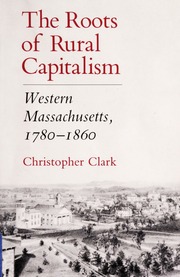
References and Quotes
Reference
Mudsill Theory
A century and a half after The Laboring Classes was published, Cornell labor scholar Chris Clark investigated and corroborated the reality of Brownson’s world. In his book Roots of Rural Capitalism, Clark found that the general labor market in the Connecticut Valley was highly undependable in the 1840s by employer standards because it was shaped by family concerns. Outside work could only be fitted into what available free time farming allowed (for farming took priority), and work was adapted to the homespun character of rural manufacture in a system we find alive even today among the Amish. Wage labor was not dependent on a boss’ whim. It had a mind of its own and was always only a supplement to a broad strategy of household economy.